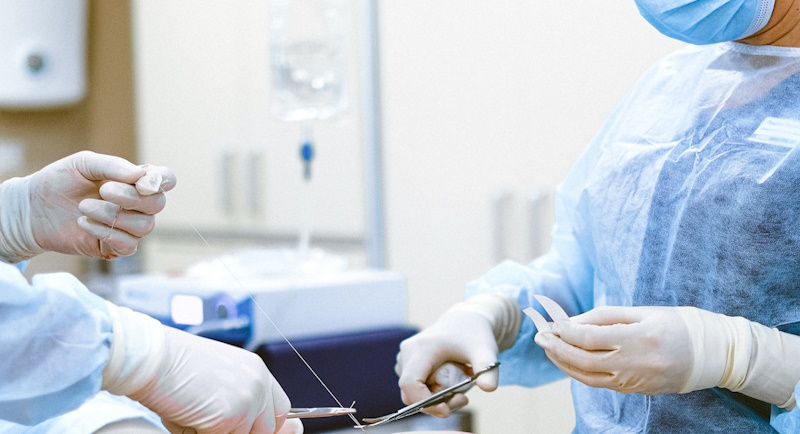How to prepare for your upcoming urology surgery
Preparing for surgery is vastly different than preparing for a leisurely family vacation. Vacation planning involves picking a destination, deciding what to wear, and planning activities with excitement for relaxation. On the other hand, surgery preparation is certainly less exciting but is equally crucial in ensuring a positive outcome. It involves taking essential steps to increase the chances of success.
If you have a urologic surgery scheduled, preparing yourself in the days and weeks leading up to the procedure is beneficial. Educating yourself about the process and becoming comfortable with it can help ease any anxiety or concerns you may have before the day of the surgery.
Here’s how to prepare for urologic surgery:
Deal effectively with pre-surgery anxiety
Feeling anxious before surgery is quite common. Patients may experience tension, uneasiness, and stress due to various reasons, such as fear of the unknown, losing control, and personal identity. To ease this anxiety, it’s important to trust your medical team and communicate your concerns with them. A few days beofre the procedure, try relaxation techniques like breathing exercises, meditation, or scheduling a massage. Review any materials and follow the instructions provided by your medical team and prepare your home before surgery, so you can comfortably rest and recover after the procedure.
Know your surgeon
It’s important to know that all urologists are surgeons and specialize in urologic surgeries. If you have any questions about your upcoming surgery, don’t hesitate to ask them. They can provide information on alternative treatment options and their specific surgical technique. Knowing about your surgery can help increase your confidence in your surgeon and yourself.
Become familiar with the hospital or the outpatient clinic where the surgery will be performed
To ensure a smooth surgery day, it’s essential to know the exact location of the facility and the best entrance to use. When you arrive, do you know who to talk to or where to go? It’s also vital to confirm that the facility is licensed and accredited. It’s helpful to familiarize yourself with the surgical and recovery room and the location of the waiting room for family members. Don’t hesitate to ask these critical questions to ensure everything goes smoothly on the day of your surgery.
Physician anesthesiologists do more than just put you to sleep
Working with your doctor, your anesthesiologist, or nurse anesthetist will suggest the best anesthesia option for you based on your health, surgery type, and personal preferences. It’s crucial to consult with your anesthesiologist before the procedure to avoid complications and ensure a quick and comfortable recovery. They will advise you when to abstain from food and drink before surgery and review your medications, recommending any necessary changes to avoid complications. Remember to inform them of any supplements, vitamins, or minerals you take that could impact the surgery’s outcome. If you have diabetes and use insulin, they will advise you on the appropriate dose.
Know what surgical costs are covered by your health insurance
If you are scheduled for surgery, you may have various concerns about the total cost, including hospital stay expenses, surgeon’s fees, and medication costs. These fees can accumulate quickly and result in unexpected medical bills. To avoid such surprises, it’s best to contact your health insurance company and inquire about what expenses are covered. Most people are only aware of the basic components of their health insurance policy. However, before undergoing a planned surgery, you should speak with your health insurance manager and ask specific questions to understand the details that matter. For instance, do you need to pay a co-pay or deductibles? Are you required to use an “in-network” facility and surgeon for the surgery? Knowing the answers to these questions and others can significantly impact your expectations.
Lead a healthy lifestyle
Prioritizing a healthy lifestyle can significantly increase the likelihood of a safe and efficient surgery with a smooth recovery. This includes consuming a balanced diet rich in fruits and vegetables, engaging in regular exercise, obtaining adequate sleep, and managing pre-existing medical conditions such as diabetes, high blood pressure, and cholesterol. If you are a smoker, quitting before surgery can improve lung function, increase oxygen-carrying capacity, and offer numerous other health benefits. If possible, reach and maintain a healthy body weight before the surgery. This makes it easier for you and the surgeon in ensuring safer access, tolerance to positioning, and quicker recovery with a reduced risk of complications and wound infection.
Taking good care of yourself is vital for avoiding getting a cough or cold before the surgery, which could result in having to reschedule when you are healthy.
In summary, practicing good self-care throughout your life significantly impacts the outcome of surgery.
Dr. David Samadi is the Director of Men’s Health and Urologic Oncology at St. Francis Hospital in Long Island. He’s a renowned and highly successful board certified Urologic Oncologist Expert and Robotic Surgeon in New York City, regarded as one of the leading prostate surgeons in the U.S., with a vast expertise in prostate cancer treatment and Robotic-Assisted Laparoscopic Prostatectomy. Dr. Samadi is a medical contributor to NewsMax TV and is also the author of The Ultimate MANual, Dr. Samadi’s Guide to Men’s Health and Wellness, available online both on Amazon and Barnes & Noble. Visit Dr. Samadi’s websites at robotic oncology and prostate cancer 911.

